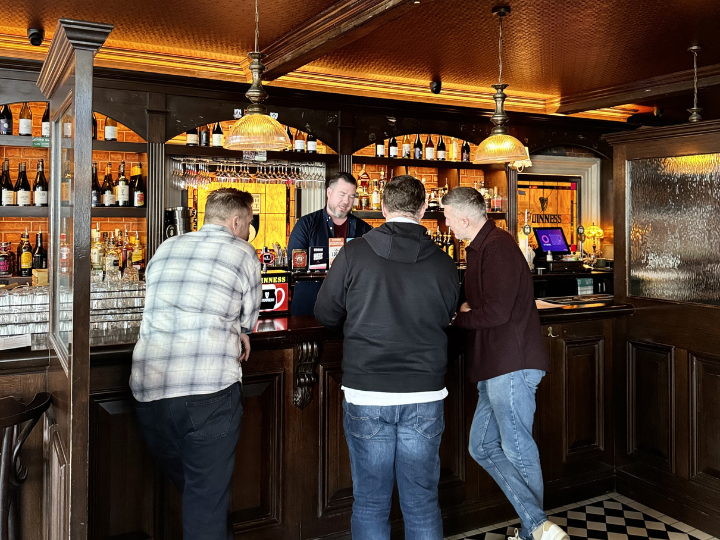In the hospitality industry, the decisions managers make on staffing, inventory, and pricing impact everything from daily operations to long-term profitability. However, for managers to make informed, impactful decisions, they need strong support. By providing financial tools, insights, and guidance finance teams can empower managers to control costs, boost sales, and make decisions that drive success.
1. The Power of Managerial Decision-Making in Hospitality
Venue Managers in hospitality oversee crucial aspects of a venue’s operations, from staffing and wages to sales strategies and inventory control. Each decision they make directly affects service quality, customer satisfaction, and profitability. When managers have the resources and support to make well-informed choices, they contribute to a smooth-running, profitable venue. However, without access to the right tools and financial data, managers may struggle to maintain control and venue profitability may suffer.
2. The Impact of Key Manager Decisions on Profitability
Labor Cost Control: Labor is one of the highest expenses in hospitality, and managers must decide how to allocate staff to balance excellent service with cost efficiency. Understanding peak times, seasonal demands, and special events helps managers schedule shifts effectively. With finance team support, managers can use labor cost data that compares with sales to make optimal staffing decisions.
Cost of Goods Sold (COGS) Management: COGS represents a significant part of the budget in bars, pubs, and restaurants. Decisions around inventory ordering, supplier management, and waste reduction directly impact a venue’s gross margin. Managers who can access inventory tracking data and cost analysis reports from finance teams can better control COGS and improve profitability.
Sales and Pricing Strategies: Managers also decide on pricing, promotions, and menu adjustments. These decisions impact both customer satisfaction and revenue. When managers collaborate with finance teams, they gain insights into high-margin items, sales trends, and customer preferences, which helps them make pricing decisions that maximize revenue.

3. Finance Teams Support Effective Decision-Making
For managers to make strong, data-informed decisions, they need consistent access to financial guidance and tools. Finance teams play a pivotal role in providing this support, ensuring that managers have the resources to make impactful choices.
Providing Financial Reporting and Analysis: Monthly profit and loss reports, weekly profitability reports, and daily forecasting help managers understand their financial performance. Finance teams can provide customized reports, allowing managers to identify trends and problem areas quickly. With this data, managers are better equipped to adjust staffing, pricing, or purchasing strategies.
Offering Forecasting and Budgeting Tools: Forecasting tools allow managers to anticipate customer demand and budget resources accordingly. Finance teams can help managers forecast sales based on historical data, local events, and seasonal trends. Budgeting support ensure that managers have clear targets for wages vs sales and COGS vs sales, keeping the venue on track to achieve profitability goals.
Delivering Finance Coaching and Training: Many hospitality managers excel in customer service but may need training in financial management. Finance coaching provides them with essential skills to interpret data, monitor KPIs, and understand how their decisions affect profitability. Finance teams can offer regular training sessions on budgeting, variance analysis, and other financial skills that empower managers to make data-driven choices confidently. In summary it is the finance teams role to make sure that managers are accountable to a budget.
4. How the PERI Principle Enhances Financial Decision-Making
The PERI principle—Plan, Execute, Review, Improve—provides managers with a structured approach to financial decision-making. When owners and finance teams reinforce PERI, they help managers apply this framework consistently:
- Plan: Owners and finance teams collaborate with managers to set financial goals, establish budgets, and anticipate peak periods, creating a clear action plan.
- Execute: Managers are empowered to execute their plans with confidence, making decisions on staffing, inventory, and pricing that align with the overall financial goals.
- Review: Regular financial reviews, led by finance teams, help managers evaluate their performance, identify discrepancies, and assess key metrics such as labor costs, COGS, and profit margins.
- Improve: Owners and finance teams support managers in refining their strategies by providing insights into industry trends, benchmarking data, and continuous training. Meetings between managers and finance teams ensure managers are accountable and are focused on constantly improving.

5. Benefits of Finance Team Support in Hospitality
The partnership between finance teams, and managers creates a culture of informed decision-making. This synergy brings significant benefits, including:
- Higher Profit Margins: With finance team support, managers can make decisions that keep labor costs and COGS in check, which directly improves profit margins.
- Stronger Financial Confidence Among Managers: Managers who understand financial data and receive regular guidance feel more confident in their decisions, leading to better outcomes and reduced financial stress.
- Enhanced Customer Satisfaction and Efficiency: Managers supported by finance teams can focus on creating a seamless customer experience while ensuring efficient use of resources.
Conclusion
In hospitality, manager decisions determine the profitability and reputation of a venue. By equipping managers with financial insights, tools, and coaching, finance teams play a vital role in driving operational success. This partnership creates a stable, profitable business where managers are empowered to make strategic choices that benefit both the bottom line and customer satisfaction. Together finance teams and managers can build a resilient and competitive venue that thrives in a dynamic industry.

